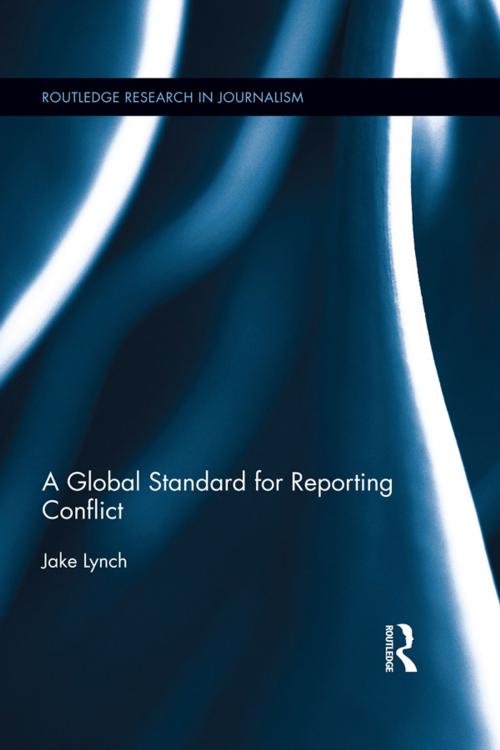A Global Standard for Reporting Conflict
Nonfiction, Reference & Language, Language Arts, Journalism, Social & Cultural Studies, Social Science| Author: | Jake Lynch | ISBN: | 9781136221897 |
| Publisher: | Taylor and Francis | Publication: | September 5, 2013 |
| Imprint: | Routledge | Language: | English |
| Author: | Jake Lynch |
| ISBN: | 9781136221897 |
| Publisher: | Taylor and Francis |
| Publication: | September 5, 2013 |
| Imprint: | Routledge |
| Language: | English |
A Global Standard for Reporting Conflict constructs an argument from first principles to identify what constitutes good journalism. It explores and synthesises key concepts from political and communication theory to delineate the role of journalism in public spheres. And it shows how these concepts relate to ideas from peace research, in the form of Peace Journalism. Thinkers whose contributions are examined along the way include Michel Foucault, Johan Galtung, John Paul Lederach, Edward Herman and Noam Chomsky, Manuel Castells and Jurgen Habermas. The book argues for a critical realist approach, considering critiques of ‘correspondence’ theories of representation to propose an innovative conceptualisation of journalistic epistemology in which ‘social truths’ can be identified as the basis for the journalistic remit of factual reporting. If the world cannot be accessed as it is, then it can be assembled as agreed – so long as consensus on important meanings is kept under constant review. These propositions are tested by extensive fieldwork in four countries: Australia, the Philippines, South Africa and Mexico.
A Global Standard for Reporting Conflict constructs an argument from first principles to identify what constitutes good journalism. It explores and synthesises key concepts from political and communication theory to delineate the role of journalism in public spheres. And it shows how these concepts relate to ideas from peace research, in the form of Peace Journalism. Thinkers whose contributions are examined along the way include Michel Foucault, Johan Galtung, John Paul Lederach, Edward Herman and Noam Chomsky, Manuel Castells and Jurgen Habermas. The book argues for a critical realist approach, considering critiques of ‘correspondence’ theories of representation to propose an innovative conceptualisation of journalistic epistemology in which ‘social truths’ can be identified as the basis for the journalistic remit of factual reporting. If the world cannot be accessed as it is, then it can be assembled as agreed – so long as consensus on important meanings is kept under constant review. These propositions are tested by extensive fieldwork in four countries: Australia, the Philippines, South Africa and Mexico.















